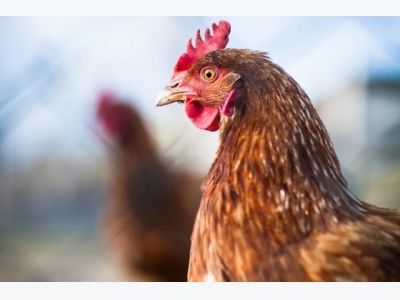Laying hens stick to their own routine

Egg laying chickens have their own routine and daily schedule that they rigidly stick to, differentiating them from others in the flock.
The researchers used infrared beams that recognised individual chips tied around the birds’ legs, recording their identity, time and location on a computer, allowing them to see how often the bird’s travelled up and down the tiers of the aviary during the day. Photo: Shutterstock
That’s the current conclusion around ongoing research work being carried out by animal welfare researchers at the University of Berne, Switzerland, who have been tracking bird behaviour in multi-level aviaries.
Not all birds want to go outside
The researchers have found that within an aviary there are some birds that choose to go outdoors all the time, and some who never go out.
Animal welfare researcher Michael Toscano said preliminary studies suggested that chickens who went outside had healthier bones and lungs and may even be happier. Birds that regularly go out also had higher markers for neural growth. Research in rats has shown that low levels of neurons led to chronically depressed rodents.
Which birds are more likely to go outside?
Trackers have been placed on the birds and Mr Toscano is keen to learn which factors make the birds more or less likely to go outside and how keep bone damage affects a bird’s mobility and egg production.
The researchers used infrared beams that recognised individual chips tied around the birds’ legs, recording their identity, time and location on a computer, allowing them to see how often the bird’s travelled up and down the tiers of the aviary during the day.
Every bird has its own unique routine
“So far they’ve found each bird’s daily routine is unique, and it follows the same schedule every day. We didn’t expect it to be so consistent that you could tell it’s a separate animal just from looking at the graphs,” he told the journal Popular Science.
Christine Nicol, professor of animal welfare at the University of Bristol, who has written “The Behavioural Biology of Chickens,” said the study looked as though it had a very promising recording system.
“Individual tracking of individuals within large groups is an important goal, but it has been difficult to get the technology, which promises so much, to actually work in practice.”
Related news
 Restoring the hatchability of stored eggs
Restoring the hatchability of stored eggs Poor or prolonged storage of incubating eggs leads to major losses in hatch results. Restoring the hatchability of stored eggs is now possible by the commercial
 Interview: Is robotic egg collection the future?
Interview: Is robotic egg collection the future? Chickens lay most of their eggs in their nests, but some end up in the hay. Egg collection is therefore both necessary and time-consuming
 Vaccine atomisation promising for influenza immunisation
Vaccine atomisation promising for influenza immunisation A few more research steps to go and then mass vaccination of poultry against bird flu will be a viable option. Vaccine atomisation promising for influenza